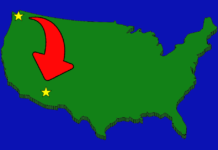
When children are removed from their homes because of neglect or abuse, Maricopa resident Vince Vitale is a constant in the chaos.
“You are the one person who does return phone calls, the one person who comes to see them, the one person who answers all their questions,” Vitale said.
Vitale is a Court Appointed Special Advocate (CASA) volunteer. CASA volunteers are everyday people selected by judges to play a neutral role in the proceedings and decisions of a child removed from a parent’s care by the state’s Child Protective Services (CPS).
There is an application process, interview and polygraph test. If the candidate is accepted into the program, he or she is assigned a child and has access to a variety of information.
Vitale can access medical records, financial statements and court documents pertaining to his child and his child’s family.
There are 15 county CASA programs in Arizona, said Katie Mayer, the marketing and outreach specialist for CASA of Arizona. The program also operates on a national scale.
Only one out of nine children has a CASA volunteer and Arizona has the highest number of children in foster care of any state in the country.
Vitale spends 30 or more hours a month volunteering, which can be physically and mentally strenuous, he said.
“The only person I’m concerned about is the kid,” Vitale said. “You have access to the most intimate part of their life and you have to be discreet and circumspect.”
Vitale writes court reports for the presiding judge that include what he thinks is in his child’s best interest. In some cases, the child is returned to his or her parents or placed in foster care.
His view may differ from social workers and other representatives who preside over the case because of the time he spends with the child. Oftentimes, a caseworker has more than 50 children to balance at any given time.
A CASA volunteer is rarely assigned more than one case.
“We’re the eyes and ears of the court,” Vitale said. “When you come into the court, you have an enormous amount of influence. You know more about the case and the child than anyone else in the room.”


![Rizz party organizers say city ‘lying’ One of several flyers for a "TikTok rizz party" is taped to a door in the Maricopa Business Center along Honeycutt Road on April 23, 2024. [Monica D. Spencer]](https://www.inmaricopa.com/wp-content/uploads/2024/04/spencer-042324-tiktok-rizz-party-flyer-web-218x150.jpg)
![Province writer opens the athlete’s mind in new book Tom Schuman, a Province resident, poses with a copy of his new book, "My Wide World of Sports," outside his home on May 2, 2024. [Monica D. Spencer]](https://www.inmaricopa.com/wp-content/uploads/2024/05/spencer-050224-tom-schuman-sports-book-web-01-218x150.jpg)







![Maricopa restaurateur makes Food Network connection [Namkeen Dhaba]](https://www.inmaricopa.com/wp-content/uploads/2024/04/439456716_377105198650519_7536248579664805896_n-218x150.jpg)
![Merging lanes incite more 347 anger A merging lane sign sits on the side of State Route 347 northbound lanes during evening traffic on April 30, 2024. [Monica D. Spencer]](https://www.inmaricopa.com/wp-content/uploads/2024/04/spencer-043024-adot-merging-lanes-347-web-218x150.jpg)



